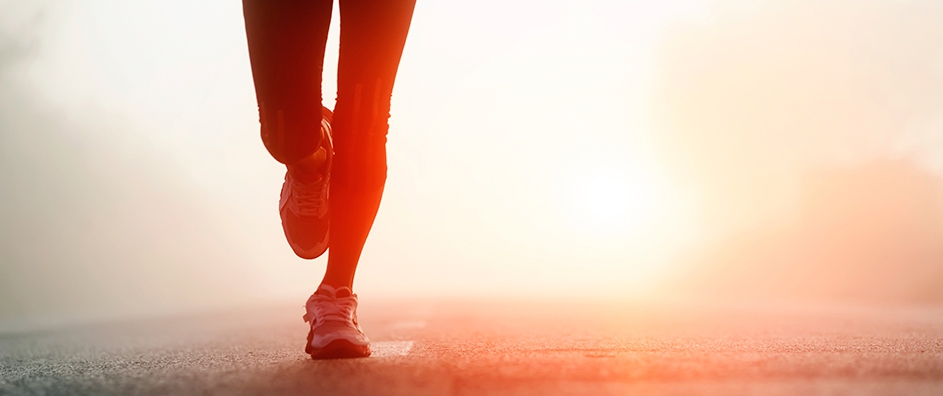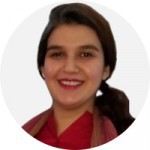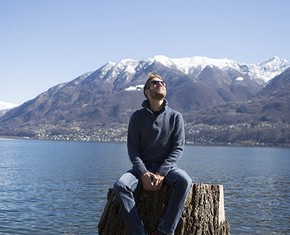The views expressed in our content reflect individual perspectives and do not represent the authoritative views of the Baha'i Faith.
The bounty of good health is the greatest of all gifts. – Selections from the Writings of Abdu’l-Baha, p. 151.
To protect the precious gift of our health, the Baha’i teachings ask us all to take a conscious, active role in caring for our bodies and our minds. From a spiritual perspective, what can we do to protect our health and prevent disease?
Unfortunately, medical science is still imperfect. We have cures for some diseases, but not for all. For the many illnesses we don’t know how to cure, medicine tries to treat them only to suppress or defeat their symptoms, or to prevent them from further development. In other words, many diseases cannot be eradicated, but only inhibited from growing worse.
Knowing that, we should do our best to prevent the onset of disease. It turns out that the old saying “An ounce of prevention is worth a pound of cure” still offers tremendous wisdom.
In many parts of the world, the advances in medical science—and good public health practices—have conquered or effectively suppressed the major causes of mortality that once afflicted so much of the human population. Injuries from unsafe conditions or violence, infections, unclean water or contaminated food, and pandemics like bubonic plague or influenza used to kill millions. While those issues and problems still exist in parts of the developing world, for the most part medical science and good public health practices have reversed those trends and allowed us to live longer and healthier lives.
 In fact, in the past 100 years, life expectancy around the world has more than doubled—one of the most remarkable accomplishments in human history. A baby born a hundred years ago, at the beginning of the 20th Century, could expect to live, on average, for 31 years. Today, the average global lifespan has more than doubled to over 67 years. That huge change occurred mainly from major advances in reducing infant mortality, along with the enormous progress made in medicine and public health.
In fact, in the past 100 years, life expectancy around the world has more than doubled—one of the most remarkable accomplishments in human history. A baby born a hundred years ago, at the beginning of the 20th Century, could expect to live, on average, for 31 years. Today, the average global lifespan has more than doubled to over 67 years. That huge change occurred mainly from major advances in reducing infant mortality, along with the enormous progress made in medicine and public health.
Because we’re living so much longer, and because we’re less likely to die suddenly from various causes, we have transitioned to a time when more deaths come from chronic illnesses than any other cause.
Those chronic and even preventable illnesses–diseases such as cardiovascular (heart) disease, stroke, cancer, diabetes, etc.—now represent the leading causes of sickness and death in the developed world. Those long-term illnesses can also cause psychological and social disorders, putting huge burdens on spouses, families and society itself. We know the best way to avoid these diseases and their adverse outcomes involve adapting healthy eating habits and getting daily physical activity or routine exercise. Science has proven that changing our lifestyles toward more healthy ones, and diligently maintaining that positive change, has the greatest potential impact on our health.
The Baha’i teachings contain a host of powerful, scientifically accurate information and recommendations for maintaining a healthy lifestyle. In accord with the primary Baha’i principle of the agreement of science and religion, Baha’u’llah repeatedly advised everyone to avail themselves of the latest and best that medical science has to offer—but also to use moderation:
Resort ye, in times of sickness, to competent physicians; We have not set aside the use of material means, rather have We confirmed it through this Pen, which God hath made to be the Dawning-place of His shining and glorious Cause. – The Most Holy Book, p. 60.
Do not neglect medical treatment when it is necessary, but leave it off when health has been restored…. Treat disease through diet, by preference, refraining from the use of drugs; and if you find what is required in a single herb, do not resort to a compounded medicament. Abstain from drugs when the health is good, but administer them when necessary. – Baha’u’llah and the New Era, p. 106.
Perhaps advice like this explains why so many Baha’is have dedicated their lives to work in health-related professions, as physicians, dentists, nurses, public health experts and research scientists. Baha’u’llah’s recommendations for maintaining health—to consult competent physicians but also to pay careful attention to diet, for example—offers a balanced approach that focuses on our long-term well-being. That balance and equilibrium, so crucial to our bodies and to our souls, is one of the consistent themes of the Baha’i revelation:
The principal causes of disease are physical, for the human body is composed of numerous elements, but in the measure of an especial equilibrium. As long as this equilibrium is maintained, man is preserved from disease; but if this essential balance, which is the pivot of the constitution, is disturbed, the constitution is disordered, and disease will supervene. – Abdu’l-Baha, Some Answered Questions, p. 257.
This short essay only skims the surface of the deep, insightful well of advice and information the Baha’i teachings offer for preventing chronic disease and staying healthy.
















Comments
Sign in or create an account
Continue with Googleor